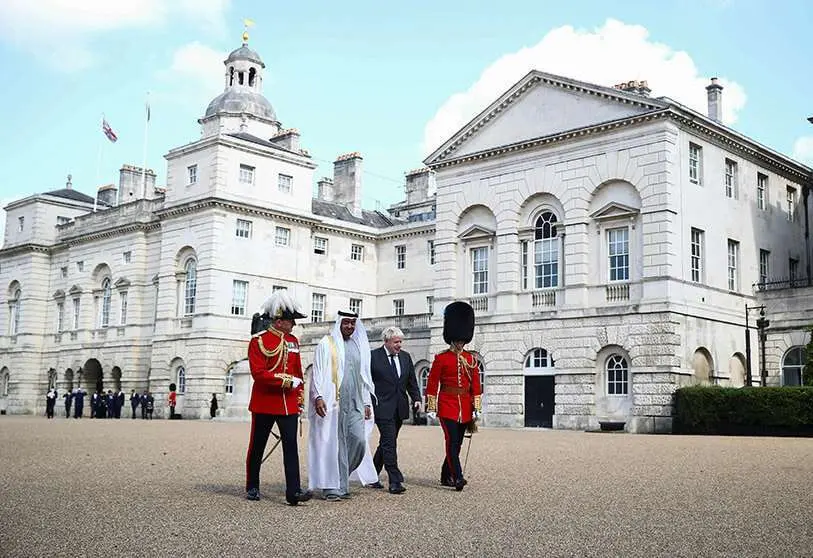Emirates and UK join forces in Fintech sector

On 16 September, British Prime Minister Boris Johnson received the Crown Prince of Abu Dhabi, Sheikh Mohammed bin Zayed, in London. The meeting served to seal a package of Emirati investments in the UK worth 14 billion euros; it also served to strengthen their strategic relations. The embattled Conservative leader said at the time that the UK and the Gulf state "are natural partners and allies, with a shared belief in harnessing the technologies of the future to tackle climate change, solve global problems and bring prosperity to our people".
The money injected by the Emirates would be spent in the areas of technology, energy transition, infrastructure and life sciences over the next five years. The same agreement also increased the size of the assets of the investment fund shared by London and Abu Dhabi, the UAE-UK Sovereign Investment Partnership (SIP). This cooperation is beneficial for both parties, which are trying to boost their economies in a context still marked by the COVID-19 crisis.

Two months after the agreement, the UAE and the UK plan to strengthen their economic ties in the area of financial technologies. The UK government and the Emirati monarchy are seeking to attract assets in the emerging Fintech market, whose sector continues to develop and represents an unprecedented opportunity for the digital transition. Companies active in this market operate technology services in sectors such as big data, mobile banking, trading, security and privacy.
The fintech industry has a partially developed market in both the UAE and the UK. The Fintech sector in the UK is worth £11 billion a year to the UK economy, some €13.5 billion. In any case, both sectors are made up of a large number of entrepreneurs, who are supported by state programmes. Networks such as London's Startupbootcamp and the Abu Dhabi Global Market provide assistance to individuals and companies to dive into the Fintech sector.
In the UK, up to 90,000 people work in the fintech sector. A figure that promises to increase in the short term, according to Statista. In fact, current numbers reflect growth of one-fifth of the employees recorded in 2017, and the sector is expected to exceed 100,000 employees by 2023. Numbers that attract the attention of Emirates, whose investment priorities are focused on this niche market.

In this respect, Northern Ireland is home to one of the world's leading clusters. The area is home to most of the companies involved in financial technologies. Moreover, Northern Irish companies are the fastest growing. This is a trump card that the UK intends to use during trade negotiations with the Gulf Cooperation Council (GCC), which represents a region with which London has increased its economic ties.
The abrupt exit from the EU left the UK orphaned, and the UK is now trying to reorient its market towards other economies. Meanwhile, the UAE's priority objective is to become a leader in the digital technology sector. The Gulf country is steadily liberalising the market and reducing regulations in order to attract foreign investment and encourage local entrepreneurship. At the same time, it is organising the Fintech Abu Dhabi Festival, an event held on Wednesday to promote the new digital ecosystem in which more than 40 countries were represented.









